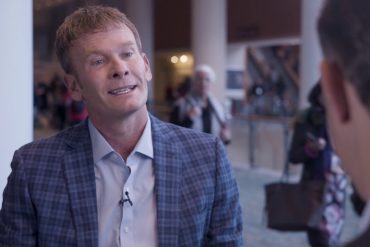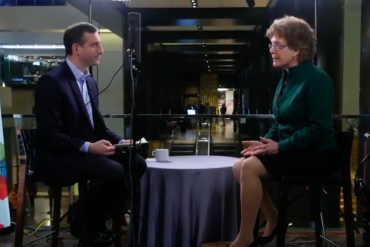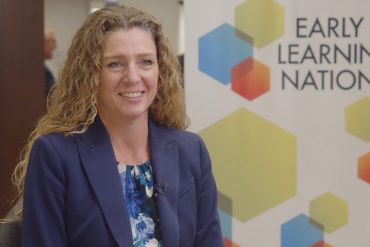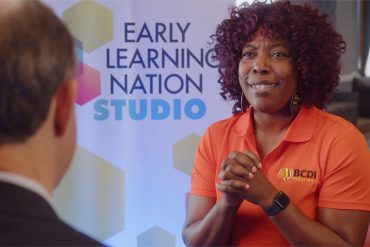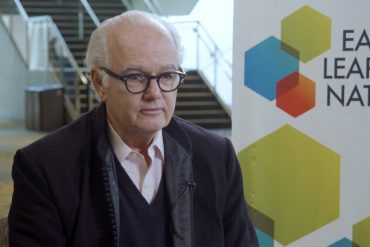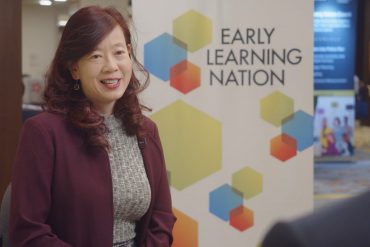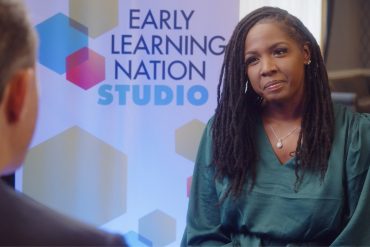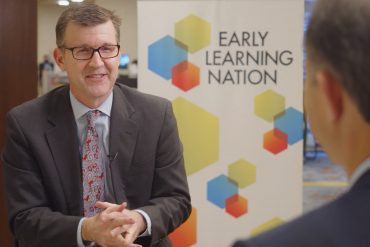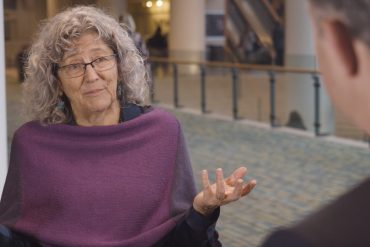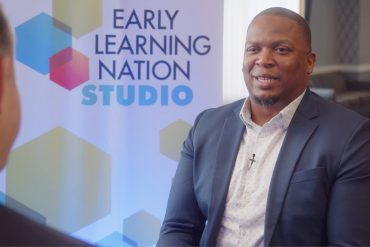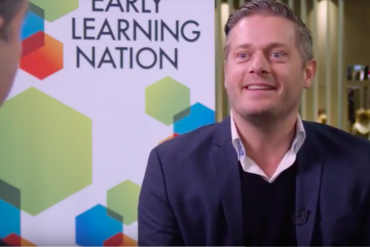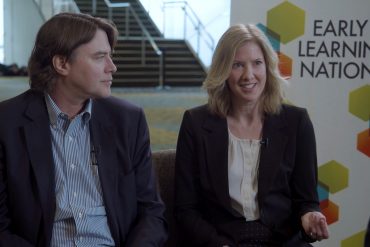In addition to working with children and parents while overseeing New Horizon Academy’s nearly 90 sites in four states, CEO Chad Dunkley also spends time working with public officials, helping expand access to early learning and drive policy changes that rework its “broken” economics.
ReadyNation International convened its annual Global Business Summit on Early Childhood. What are the global trends and insights – and how can businesses best invest in their “workforce of the future?” Watch our conversation with Dr. Sara Watson.
For a community looking to address various social challenges, Vallejo, CA is starting with early childhood learning. As City Councilmember Pippin Dew says, programs such as the new First 5 Center not only help set children for future education success, but also helps families be the most productive they can be.
With experience from around the world, the President of BCDI-Carolinas compellingly synthesizes what she sees as the root challenge to early childhood learning: Mindset. Dr. Devonya Govan-Hunt outlines the five ways she and her colleagues have set out to tackle that obstacle, with special focus on excessive disciplinary actions in preschools.
According to NYU University Professor Lawrence Aber, poverty and violence are the two most toxic challenges for child development – areas he has researched from the U.S. to Africa and the Middle East. Regardless of location, children can experience poverty and violence in difference ways and levels. Aber explains the research, tools and tactics required to give children the best opportunities for successful development. Filmed for Early Learning Nation’s Mobile Studio at the Society for Research in Child Development’s biennial meeting in Baltimore, MD, on March 22, 2019. #SRCD19
As Fremont (CA) Mayor Lily Mei notes, for four of the past five years, Fremont has been listed as the happiest city in the U.S. The city also boasts incredible diversity, drawing families across multiple backgrounds and a range of languages. One area where that diversity pays off is in education. With some 35,000 kids and 42 schools, Fremont has focused on building new early learning centers, high-ranking schools and equitable access, including with special-needs pre-K programs.
As Senior National Education Administrator for T-Mobile for Education, Dr. Kiesha King helps oversee T-Mobile’s Project 10Million, a $10.7 billion effort to bridge the digital divide by providing access to devices to “ensure internet access is not a barrier to a child's education.”
As President & CEO of the Smarter Learning Group, Ron Fairchild works directly with communities nationwide. He works with foundations, nonprofits and school districts across the country, all to expand educational opportunities for low-income kids and families. As Fairchild describes, getting to continual strong results takes work. But the ability to get there—and the responsibility to try to improve the next generation of outcomes—exists in every community.
How do can the children’s individual identities evolve naturally and fully in the face of stereotypes that can often plague our communities and societies? As Julie Olsen Edwards, author ‘Anti-Bias Education for Young Children and Ourselves’ explains, some of that help can come from teachers – and how they think about their curriculum.
Every child has a story. And the BCDI-Carolina’s Marketing & Communications Manager explains why—in order to improve all children’s learning experience—it’s incumbent on all of us to listen to their stories and know how to share them with others.
What role does play play in early learning? Kasper Ottosson Kanstrup, vice president and global head of Communities through Play at The Lego Foundation, pulls out his bag of toys, er, research and explains the science of how children learn through play.
Executive function – the skills to focus and manage tasks – is, of course, central to childhood development. Given that, measuring executive function becomes imperative. How does that work? University of Minnesota professors Stephanie M. Carlson & Philip David Zelazo explain their research and the powerful tool they’ve created. Filmed for Early Learning Nation’s Mobile Studio at the Society for Research in Child Development’s biennial meeting in Baltimore, MD, on March 22, 2019. #SRCD19


